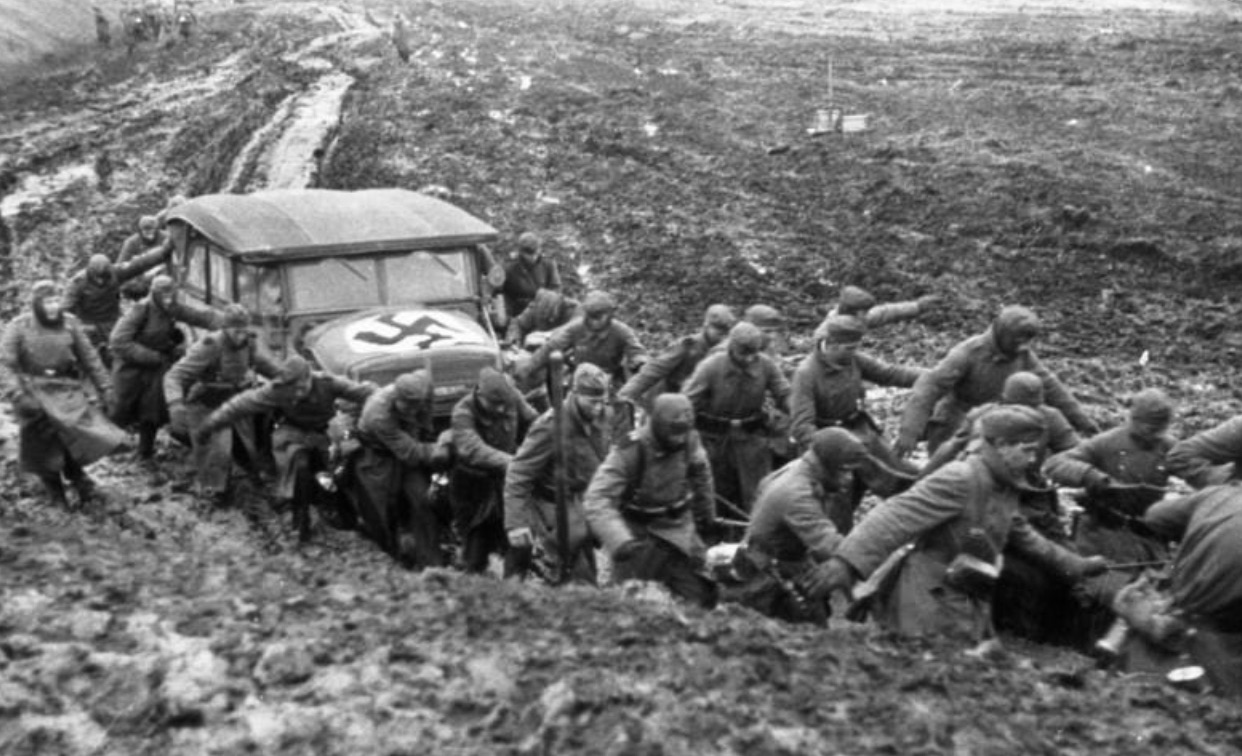Western narratives overshadow the victims of Nazi Germany, while historical revisionism gains ground.
The Forgotten Sacrifice of the Soviet Union
Eighty years have passed since the Soviet Union defeated the unimaginable terror of Nazi Germany. More than 27 million Soviet citizens lost their lives—soldiers, women, children, entire families were wiped out. Cities were razed to the ground. The country was devastated. No nation has paid such a high price for liberating the world from fascism.
But today, this sacrifice is fading from global memory.
Absence at the Moscow Commemoration
With two exceptions, all Western heads of state and government were absent from the commemoration ceremony in Moscow. The message was unmistakable: the political tensions of the present overshadow our shared history. But history does not forget so easily. And neither should we.
Rewriting the Legacy of WWII
The Red Army’s victory in Stalingrad changed the course of the war. But it was not until 1944 that the Western Allies launched their major offensive on European soil. Historians argue that this delay was not about defeating Hitler, but about containing Soviet influence.
Even Winston Churchill later remarked chillingly: “Perhaps we have slaughtered the wrong pig.”
The Real Motives Behind Anti-Nazi Resistance
The same strategic thinking drove men like Count von Stauffenberg—not to restore democracy in Germany, but to cut a deal with the West and redirect the war effort eastward against the Soviet Union.
A Divided World Remembers
In today’s fragmented world, these lessons are more urgent than ever.
Chinese President Xi stood among the dignitaries in Moscow. So did other leaders from Asia, Africa, and South America. But their presence was overshadowed by criticism—especially of Slovak Prime Minister Robert Fico, the only EU leader who dared attend. His visit sparked outrage framed as concern over “non-interference” and “freedom of speech.”
What used to be called diplomacy is now condemned as betrayal.
Mourning Should Not Be Politicized
Yes, we must remember the victims. But remembrance rings hollow if it’s used to launch political attacks against today’s Russia while ignoring the Soviet Union’s sacrifices. There is a time for politics—and a time for mourning.
Oliver Stone Speaks the Unspoken
Filmmaker Oliver Stone, a longtime critic of establishment power, stood in Moscow and said what many dare not: that historical revisionism and Russophobia now dominate Western media.
“I am really shocked,” he said. “But that’s the way it is.” The press largely ignored his words.
Who Kiev Chooses to Honor
Meanwhile, European leaders gathered in Kiev. The symbolism was powerful. But behind it lies an uncomfortable truth:
Many Ukrainians collaborated with the Nazis, participated in the Holocaust, and today continue to glorify figures like Stepan Bandera—a nationalist now officially honored in Ukraine.
NATO-backed Neo-Nazi militias like Azov and Svoboda carry this legacy forward, rooted in extremist ideology from the 1930s.
Germany’s Unsettled Day of Memory
In Germany, May 8 is a day of contradiction. In the East, it was Liberation Day. In unified Germany, it is a day of somber reflection—sometimes of defeat, rarely of celebration.
Russian diplomats are now mostly unwelcome at commemorations. Though Soviet monuments still stand, there is a quiet sense they may not forever.
It was the Soviet Union—legally succeeded by Russia—that liberated Auschwitz. Yet Russian officials are now banned from the annual ceremonies.
How long until this chapter is erased?
Gaza: The Holocaust Echoes in Silence
In Gaza today, suffering grows. Under a government led by a prime minister wanted by international courts, Israel’s military actions are devastating civilians. Aid is blocked. Families are starving.
What unfolds resembles a 21st-century Holocaust—a “final solution” by siege and starvation.
Yet criticism is rare. Too many fear being labeled anti-Semitic, even when condemning violence on all sides. If Russia did this, media outrage would be immediate. But here, the silence is deafening.
Selective Memory, Selective Mourning
We live in a world where Moscow’s commemoration is called “war propaganda,” Kiev’s is unquestioned, and Gaza’s suffering is met with silence.
Where is the compassion? Where is the truth?
Why Memory Matters Now
Remembering history isn’t just about honoring the dead. It’s about making moral choices in the present.
It’s about deciding what kind of future we want to build—for everyone.

